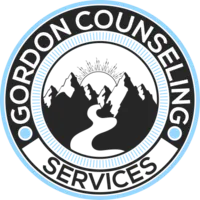Depression
Depression is a mental illness which is characterized by prolonged emotional symptoms including:
- Apathy
- Sadness
- Guilt
- Exhaustion
- Irritability
A person must have been experiencing symptoms for at least two weeks to be diagnosed with depression. Every case is unique and requires individual attention, but there are a number of effective complementary ways of treating depression, including:
- Talk therapy
- Medication
- Adopting a healthier lifestyle
Anxiety
Experiencing occasional anxiety is a normal part of life. However, people with anxiety disorders frequently have intense, excessive and persistent worry and fear about everyday situations. Often, anxiety disorders involve repeated episodes of sudden feelings of intense anxiety and fear or terror that reach a peak within minutes (panic attacks). They may be mistaken for heart attacks or strokes, but are actually psychological rather than physical. Panic attacks can occur suddenly and usually peak within ten minutes. Most panic attacks end within 20 to 30 minutes.
Some symptoms include:
- Chills
- Nausea
- Sweating
- Chest pain
- Palpitations
- Shaking
- Feelings of suffocation
A panic attack can happen without an obvious cause, but people with panic disorder may develop phobias related to something they associate with panic attacks, including open spaces, and large crowds.
Panic disorder is classified as an anxiety disorder, and like other forms of anxiety, it is commonly treated with a combination of therapy, medications, and healthy lifestyle changes. Anxiety patients are also encouraged to do breathing exercises, get regular exercise, and to avoid stimulants.
PHOBIAS
Encountering certain obstacles or situations may leave one frightened, such as being afraid of the dark, high heights, or animals. Most of us are able to remain calm, rationalize the situation, and find a way around it, but this doesn’t work for everyone. According to the National Institute of Mental Health, more than 10 million adults live with some kind of phobia.
What is a phobia?
Phobias, according to the American Psychological Association, are intense fears that result in distress and can be intrusive. Individuals with this anxiety disorder have an irrational fear of things that don’t pose any real threat.
Treatment options
- Psychotherapy, also known as talk therapy, where they can learn how to think, react, and behave to whatever it is that they fear. It is meant to reduce the feeling of overwhelming anxiety.
- Medications aren’t a cure but they help deal with symptoms.
- Individuals can also learn stress-management techniques, such as meditation, yoga, or other holistic approaches.
STRESS MANAGEMENT
Everyone encounters stress during their lives at one point—never-ending bills, demanding schedules, work, and family responsibilities—and that can make stress seem inescapable and uncontrollable. Stress management skills are designed to help a person take control of their lifestyle, thoughts, and emotions and teach them healthy ways to cope with their problems.
Find the Cause
The first step in stress management is identifying your stressors. While this sounds fairly easy—it’s not hard to point to major changes or a lot of work piling up—chronic stress can be complicated, and most people don’t realize how their habits contribute to their stress. Maybe work piling up isn’t from the actual demands of your job, but more so from your procrastination. You have to claim responsibility for the role you play in creating your stress or you won’t be able to control it.
Strategies for Stress Management
Once you’ve found what causes your stress, focus on what you can control. Eliminate the realistic stressors and develop consistent de-stressing habits. Instead of watching TV or responding to texts in bed after work - take a walk, or read a book. Maintaining a healthy diet, exercising regularly, and getting enough quality sleep, will ease feelings of stress and help you relax.
Also, make a conscious effort to set aside time for yourself and for relaxation. Alone time can be whatever you need it to be. Some people like doing activities/hobbies but you can also treat yourself to something simple, like reading, having a spa day, listening to music, or watching a funny movie.
Finally, don’t feel like you have to solve your stress on your own. Reach out to your family and friends. Whether you need help with a problem or just need someone to listen, find a person who will be there to positively reinforce and support you. If stress becomes chronic, don’t hesitate to seek the help of a therapist.
